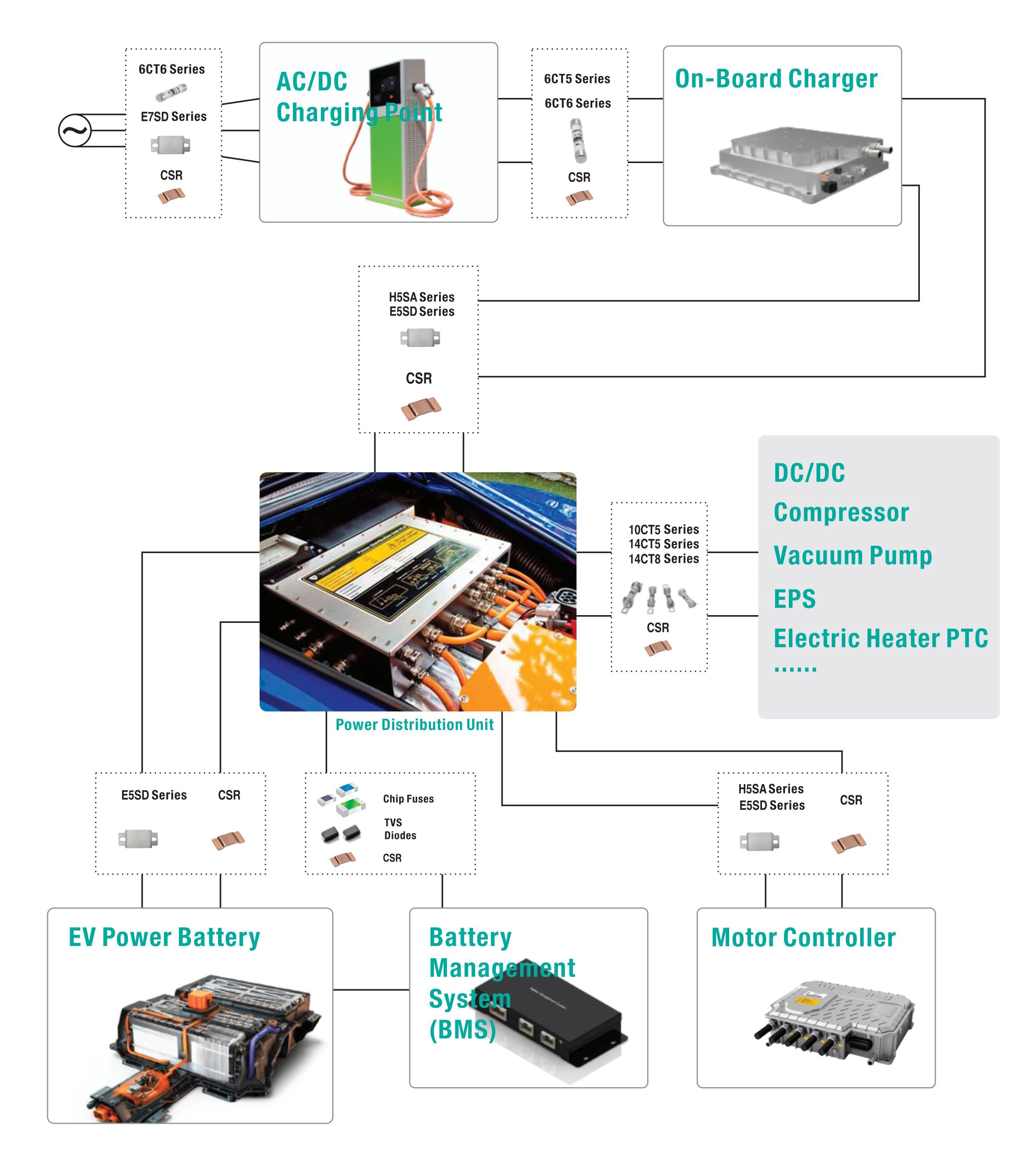SMD MicroResistance Precision Alloy Shunt Resistors in Automotive Controllers
Overview
The modern automobile is becoming an increasingly complex machine, with controllers embedded throughout the vehicle to manage everything from engine performance and braking systems to infotainment and driver assistance features. These automotive controllers rely on highprecision electronic components to monitor and control various systems, ensuring reliability, safety, and efficiency. One such critical component in these systems is the SMD (SurfaceMount Device) microresistance precision alloy shunt resistor, which plays an essential role in current measurement and control.
Shunt resistors are used in automotive controllers to monitor current flow through key components like power supply circuits, sensors, actuators, and motors. In particular, precision alloy shunt resistors are chosen for their high accuracy, thermal stability, and robustness, making them ideal for the demanding environments in automotive applications.

Role and application of SMD MicroResistance Precision Alloy Shunt Resistors in Automotive Controllers
SMD microresistance precision alloy shunt resistors are particularly wellsuited to meet the rigorous demands of automotive controllers. Below are key areas where these resistors are applied in various automotive control systems:
1. Engine Control Units (ECUs)
ECUs control critical engine functions such as fuel injection, ignition timing, and emissions management. These systems require realtime current feedback to ensure that all components, including sensors and actuators, are operating within their specified ranges.
Application: Shunt resistors are used to measure the current flowing through various circuits in the ECU. Accurate current sensing helps the ECU optimize engine performance and efficiency while also detecting faults such as electrical overloads that could indicate a problem with the engine’s sensors or actuators.
Resistor Role: SMD precision alloy shunt resistors with low tolerance (±0.5% or better) and a stable temperature coefficient (TCR) provide reliable feedback to the ECU, ensuring that the engine operates efficiently and safely under varying conditions.
2. Battery Management Systems (BMS)
In electric vehicles (EVs) and hybrid electric vehicles (HEVs), the Battery Management System (BMS) plays a critical role in managing the battery’s charge and discharge cycles, ensuring safe operation, and extending the life of the battery. Accurate current measurement is essential for tracking the charge and discharge currents, as well as for detecting anomalies such as overcharging, undercharging, or short circuits.
Application: Shunt resistors are placed in series with the battery pack to monitor the charging and discharging currents. The BMS uses this information to calculate the battery’s state of charge (SOC) and state of health (SOH), enabling more efficient energy use and battery longevity.
Resistor Role: SMD microresistance precision alloy shunt resistors with high precision, low TCR, and high thermal stability ensure that the BMS can provide accurate, realtime current measurements even in the face of significant temperature fluctuations, thus safeguarding the battery and optimizing its performance.
3. Brake Control Modules (BCM)
In advanced braking systems, such as Electric Brakes or BrakebyWire systems, current sensing is vital to monitor the performance of brake actuators and motors. These systems require precise feedback to ensure reliable braking performance and to prevent system malfunctions.
Application: Shunt resistors are used in brake control modules to measure the current flowing through the brake actuator motors. This data helps the controller regulate braking force and monitor the motor’s health, ensuring safe and consistent braking.
Resistor Role: Precision shunt resistors help prevent current overload conditions that could lead to overheating or failure of the brake system, improving the safety and reliability of the vehicle.
4. Power Distribution Units (PDU)
Power Distribution Units (PDU) manage the distribution of electrical power across various subsystems within the vehicle. To ensure proper power allocation and prevent overloading, the PDU relies on current feedback from shunt resistors to monitor the power flowing through different circuits.
Application: Shunt resistors are used to monitor the current in the power lines connected to various subsystems, such as lighting, infotainment, HVAC systems, and more. The current measurements help the PDU ensure that power is distributed efficiently and safely throughout the vehicle.
Resistor Role: Microresistance precision alloy shunt resistors offer low resistance values and high accuracy, ensuring that the PDU can maintain stable and balanced power distribution while preventing overloads and faults.
Key Benefits of SMD MicroResistance Precision Alloy Shunt Resistors in Automotive Controllers
1. High Accuracy and Precision
SMD shunt resistors provide highly accurate current measurements, with tolerances as low as ±0.1%, making them ideal for automotive controllers where precise feedback is critical for performance and safety.
2. Temperature Stability
Low TCR (Temperature Coefficient of Resistance) ensures that shunt resistors maintain consistent accuracy despite temperature fluctuations, which is crucial for automotive applications where components are exposed to a wide range of operating temperatures.
3. Compact Size for Integration
The SMD form factor enables efficient use of space in tightly packed automotive circuits, supporting the miniaturization of modern vehicle electronics without sacrificing performance.
4. Durability and Robustness
Automotive environments subject components to vibration, shock, and thermal cycling. Precision alloy shunt resistors are designed to withstand these stresses, ensuring longterm reliability and minimal drift in resistance over time.
5. CostEffective Manufacturing
The highvolume production capabilities of SMD precision shunt resistors enable costeffective solutions without compromising on quality, making them ideal for massmarket automotive applications.
Conclusion
The integration of SMD microresistance precision alloy shunt resistors in automotive controllers highlights their critical role in ensuring the safe, reliable, and efficient operatio n of modern vehicles. From engine control units (ECUs) and battery management systems (BMS) to brake control modules (BCM) and power distribution units (PDU), these resistors provide the necessary current sensing for optimized performance, fault detection, and energy management.
As a resistor manufacturer, we recognize the increasing demand for precision and reliability in automotive electronics. Our highprecision shunt resistors offer the accuracy, thermal stability, and mechanical robustness required for nextgeneration automotive controllers, supporting the evolution of the automotive industry toward more efficient, safe, and connected vehicles.
By continuing to innovate and provide reliable resistor solutions, we aim to empower automotive engineers to create smarter, safer, and more efficient vehicles that meet the challenges of tomorrow's driving experience.